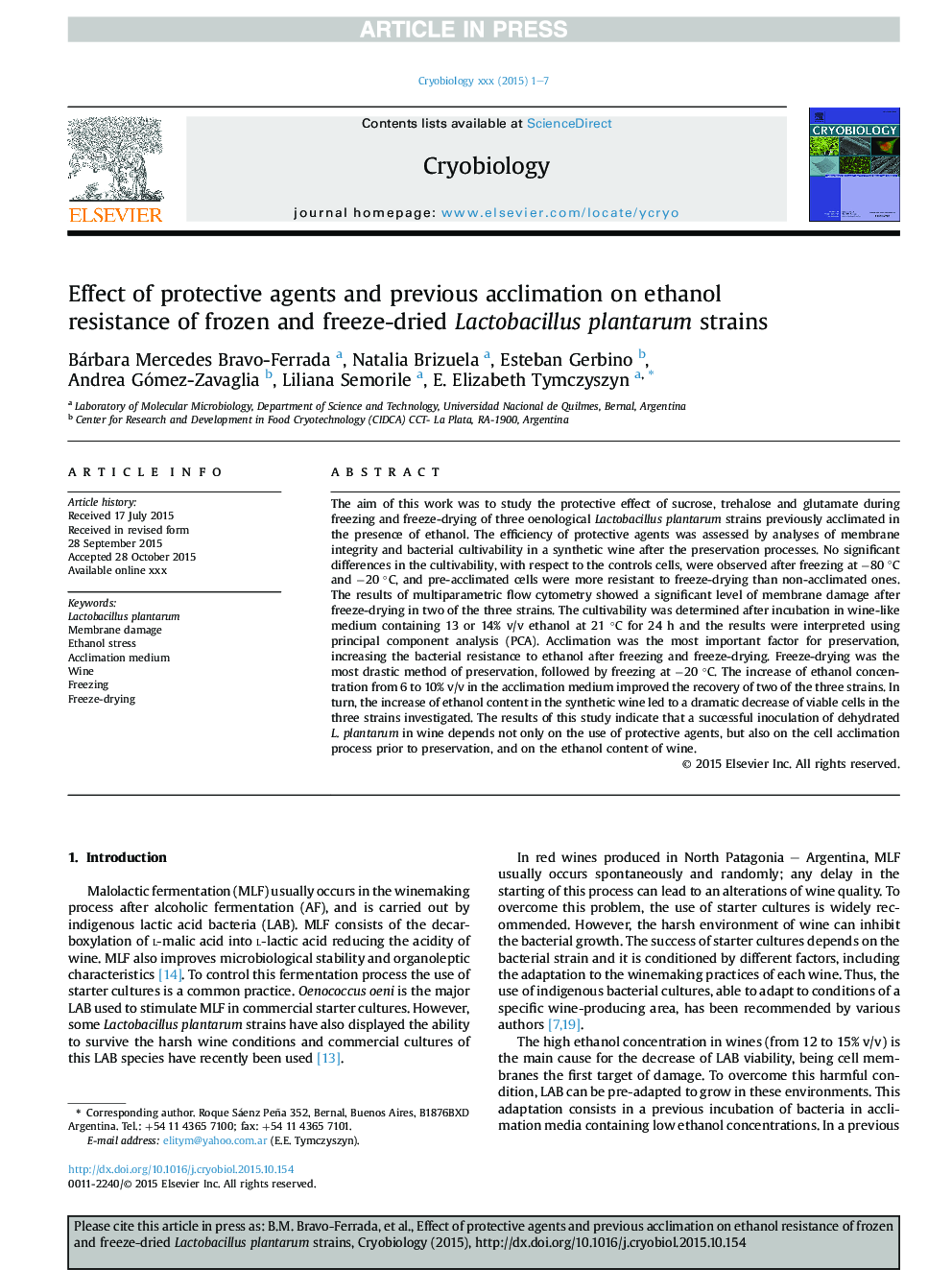| Article ID | Journal | Published Year | Pages | File Type |
|---|---|---|---|---|
| 10927687 | Cryobiology | 2015 | 7 Pages |
Abstract
The aim of this work was to study the protective effect of sucrose, trehalose and glutamate during freezing and freeze-drying of three oenological Lactobacillus plantarum strains previously acclimated in the presence of ethanol. The efficiency of protective agents was assessed by analyses of membrane integrity and bacterial cultivability in a synthetic wine after the preservation processes. No significant differences in the cultivability, with respect to the controls cells, were observed after freezing at â80 °C and â20 °C, and pre-acclimated cells were more resistant to freeze-drying than non-acclimated ones. The results of multiparametric flow cytometry showed a significant level of membrane damage after freeze-drying in two of the three strains. The cultivability was determined after incubation in wine-like medium containing 13 or 14% v/v ethanol at 21 °C for 24 h and the results were interpreted using principal component analysis (PCA). Acclimation was the most important factor for preservation, increasing the bacterial resistance to ethanol after freezing and freeze-drying. Freeze-drying was the most drastic method of preservation, followed by freezing at â20 °C. The increase of ethanol concentration from 6 to 10% v/v in the acclimation medium improved the recovery of two of the three strains. In turn, the increase of ethanol content in the synthetic wine led to a dramatic decrease of viable cells in the three strains investigated. The results of this study indicate that a successful inoculation of dehydrated L. plantarum in wine depends not only on the use of protective agents, but also on the cell acclimation process prior to preservation, and on the ethanol content of wine.
Related Topics
Life Sciences
Agricultural and Biological Sciences
Agricultural and Biological Sciences (General)
Authors
Bárbara Mercedes Bravo-Ferrada, Natalia Brizuela, Esteban Gerbino, Andrea Gómez-Zavaglia, Liliana Semorile, E. Elizabeth Tymczyszyn,
